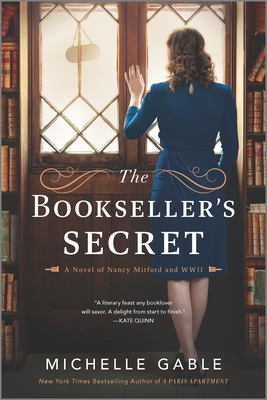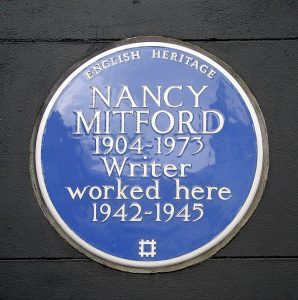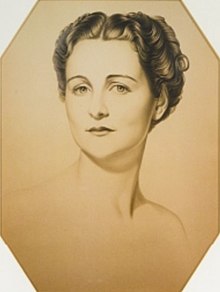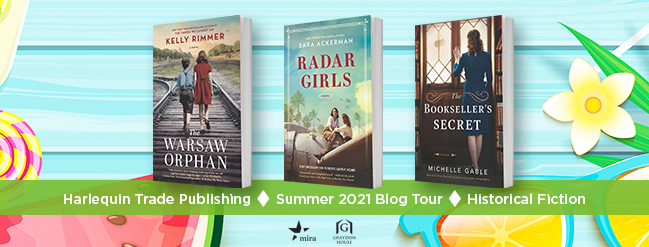 The Bookseller's Secret by Michelle Gable
The Bookseller's Secret by Michelle Gable Format: eARC
Source: supplied by publisher via Edelweiss
Formats available: hardcover, paperback, ebook, audiobook
Genres: historical fiction, women's fiction, World War II
Pages: 400
Published by Graydon House on August 17, 2021
Purchasing Info: Author's Website, Publisher's Website, Amazon, Barnes & Noble, Kobo, Bookshop.org
Goodreads
“The Bookseller's Secret is a delight from start to finish, a literary feast any booklover will savor!”—Kate Quinn, New York Times bestselling author of The Rose Code
ARISTOCRAT, AUTHOR, BOOKSELLER, WWII SPY—A THRILLING NOVEL ABOUT REAL-LIFE LITERARY ICON NANCY MITFORD
In 1942, London, Nancy Mitford is worried about more than air raids and German spies. Still recovering from a devastating loss, the once sparkling Bright Young Thing is estranged from her husband, her allowance has been cut, and she’s given up her writing career. On top of this, her five beautiful but infamous sisters continue making headlines with their controversial politics.
Eager for distraction and desperate for income, Nancy jumps at the chance to manage the Heywood Hill bookshop while the owner is away at war. Between the shop’s brisk business and the literary salons she hosts for her eccentric friends, Nancy’s life seems on the upswing. But when a mysterious French officer insists that she has a story to tell, Nancy must decide if picking up the pen again and revealing all is worth the price she might be forced to pay.
Eighty years later, Heywood Hill is abuzz with the hunt for a lost wartime manuscript written by Nancy Mitford. For one woman desperately in need of a change, the search will reveal not only a new side to Nancy, but an even more surprising link between the past and present…
“With a vivid cast of unforgettable characters, Gable expertly and cleverly delivers wit, humor, and intrigue on every page. What a delightful escape.”—Susan Meissner, bestselling author of
The Nature of Fragile Things
“A triumphant tale that highlights the magic of bookshops and literature to carry people through even the darkest days of war.”—Kristina McMorris, New York Times bestselling author of Sold on a Monday
My Review:
The secret that the bookseller is keeping forms a link between the lives of two women who are facing the same crisis in the same location – eighty years apart.
 When Nancy Mitford and Katharine Cabot each step through the doors of the Heywood Hill Bookshop in London, they are writers who seem to have lost their writing mojo – even if Nancy Mitford wouldn’t have known what that term meant.
When Nancy Mitford and Katharine Cabot each step through the doors of the Heywood Hill Bookshop in London, they are writers who seem to have lost their writing mojo – even if Nancy Mitford wouldn’t have known what that term meant.
Both have had moderate success, along with a couple of books that sank nearly without a trace. In 1942, Mitford was still smarting from the failure of timing that was the publication of Pigeon Pie, a book lampooning the “Phoney War” of 1939. Unfortunately for Mitford, the book was released just as the Sitzkrieg became the Blitzkrieg, making the book not just passe but in very poor taste.
(The sinking of Pigeon Pie got a brief mention in another recent WW2 book set in a bookstore, The Last Bookshop in London, as the unsold copies got summarily returned to the publisher. If you liked that book you’ll probably like this one and vice versa.)
As each of the women crosses the threshold of Heywood Hill they are facing variations of the same crossroad. In the midst of the war, Mitford feels as if she’s lost both the time and the inclination to write. Katie, in the wake of multiple personal losses, isn’t sure she has it in her to write again, and is even less certain that it’s worth trying.
We follow their stories back and forth, from Nancy during the war years working in the bookshop to keep body and soul together in a material sense while worried that she’ll ever find time to write anything ever again. She’s somewhat desperately in search of both a few spare minutes a day to write and a muse to inspire her to write.
It’s that search for inspiration, or rather what she seems to have found to fill it, that links Mitford to Katie. Peter Bailey has scraps of evidence that Mitford was writing an autobiography about her war work with refugees, a story that would feature his own grandmother. He’s searching for the manuscript of that book – if it even exists.
Katie, who wrote her thesis on Mitford, is willing to help him search for that manuscript so she can continue procrastinating over her own empty pages. That Bailey is intelligent, interesting and incredibly handsome doesn’t impact Katie’s desire to help him in the slightest.
Right.
In the past, we follow Mitford during the war years – a period that she did not write about herself – as she uses that attempted autobiography to get out of her slump – even if it never sees the light of day.
In the present Katie uses her search for the manuscript and her flirtation with Bailey to inspire her to pick up her own pen – or in her case open her word processor.
While the current manager of Heywood Hill looks on and hopes that he is doing the right thing. It’s left up to the reader to be the judge of that!
Escape Rating A-: I was a lot more charmed by this than I expected to be, and also a lot less lost than I thought I might be. I have not read Mitford at all, so when I came into this the only background I had were some of the better-known historical bits, that her family was involved in leftist politics before, during and after the war. I did think this might be a bit more like The Last Bookshop in London than it turned out to be, so that reference to Pigeon Pie did link the two a bit.
My lack of background about Mitford wasn’t really an issue as this story is very much a “what if?” kind of story. It’s not biographical because little is known about Mitford’s activities during the war, particularly her work at Heyward Hill. So all of the parts from Mitford’s perspective are meant to look and sound and act like her, but may or may not bear huge resemblance to what she actually did during those years.

Whatever she truly did during the war, it’s clear that Nancy Mitford was a complex individual who mined the triumphs and tragedies of her life – and there were plenty of both – in her fiction. Her best known works, The Pursuit of Love and Love in a Cold Climate, both published after the end of the war, managed to tell and retell different variations of her life in a way that let her explore her past and possibly expiate it without making relationships with her family any worse or more strained than they already were.
But when this story takes place, those bestselling books weren’t even a gleam in the author’s eye. Her success was still in the future and her present was a bit bleak in more ways than one.
And that’s where Katie’s story comes in. She has one bestselling book under her authorial belt and zero inspiration for a second. She turns to Mitford for both comfort and inspiration, comfort in the re-reading of her favorites and inspiration because Mitford went through a 15-year dry spell and Katie’s isn’t nearly that long yet. What she hopes for but doesn’t expect to find is a way forward for herself in both her life and her art.
Both parts of this story weave the personal with the professional, the difficulty of getting out of a slump, the relentless pressures of time and just plain life in general, and the way that real life intrudes and inspires at the same time. Katie both feels for Mitford and gains perspective from her at the same time.
I think that’s the part that charmed me. Coming into this cold, so to speak, I didn’t have any preconceptions about Mitford so was able to see the ways in which the two women were alike in spite of the difference of nearly a century. Both independent, both sometimes bowed under the weight of other people’s expectations, both having an approach/avoidance conflict about their work and everything else in their lives. They seemed like sisters under the skin and I wanted a happy ending for them both, but on their terms. Mitford seems to have more or less gotten hers, so Katie definitely has a chance!
Because that bookseller kept his secret after all.

